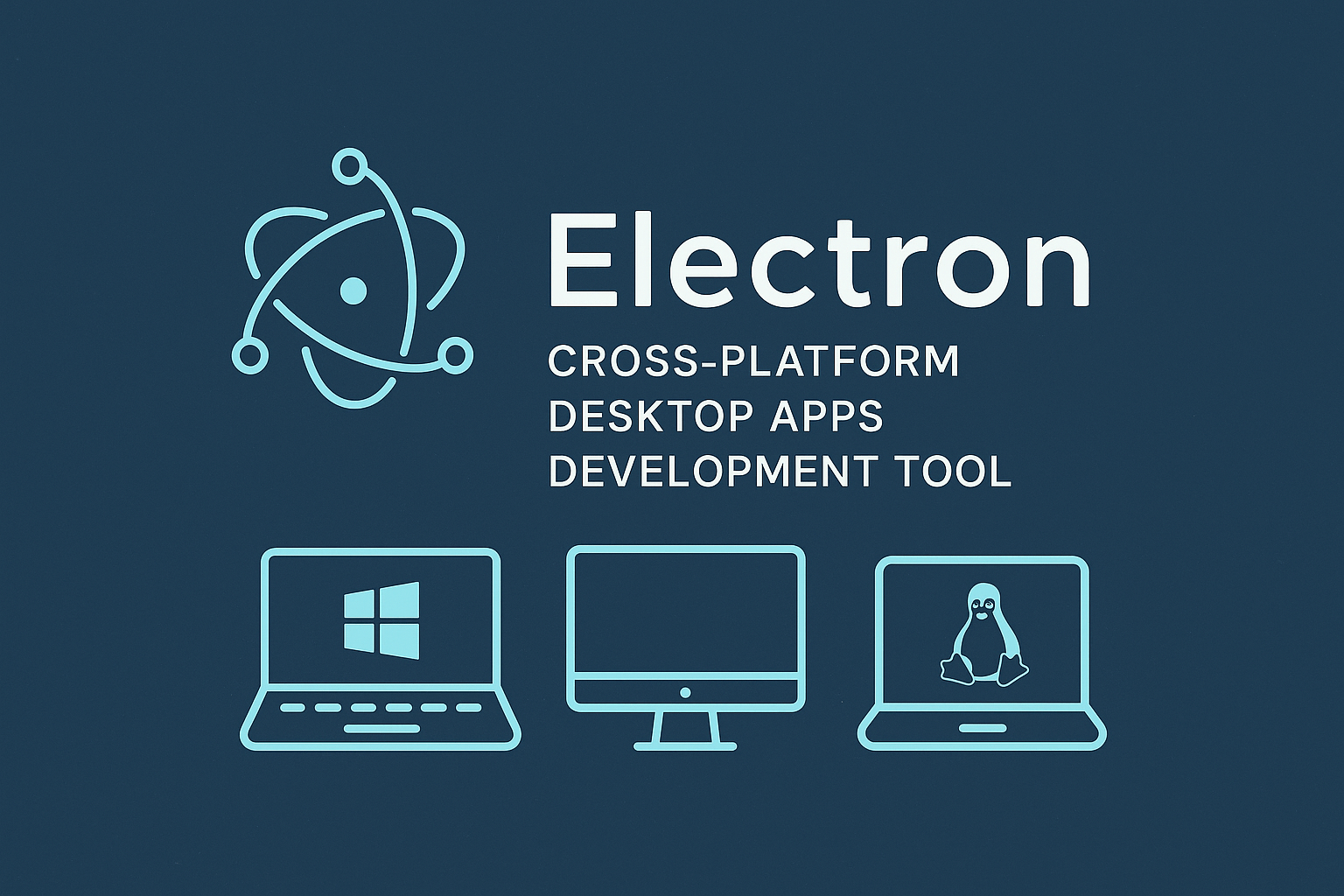
In this article, we’ll see Electron Introduction.
Table of Contents
In the realm of cross-platform application development, Electron has emerged as a game-changer. By combining the power of Chromium and Node.js, Electron empowers developers to create native desktop applications using familiar web technologies. Whether you’re a seasoned developer or just getting started, Electron offers a unique and compelling approach to building desktop applications.
We’ll explore the world of Electron and delve into its remarkable capabilities.
What is Electron
Electron is a free tool developed by GitHub for developing cross-platform desktop apps with JS, HTML, and CSS.
It uses web pages as its GUI, so you can also see it as a minimal Chromium browser, controlled by JavaScript. So all the electron apps are technically web pages running in a browser that can leverage your OS APIs.
What makes It more powerful than just a web container is the support of the Node.js runtime so you can also make use of the powerful Node.js APIs and ecosystem for building desktop apps just like you build server-side applications.
We can develop the following types of applications:
- regular apps, with a dock icon, and a window
- menu bar apps, which don’t have any dock icon
- daemons
- command-line utilities
Here is a list of apps developed with It. see this link: https://electronjs.org/apps
Benefits:
- Cross-platform support: Electron JS applications can be run on Windows, macOS, and Linux. This makes it a great choice for developers who want to create applications that can be used by a wide range of users.
- Web-based UI: Electron JS applications use web technologies like HTML, CSS, and JavaScript to create their user interfaces. This makes them familiar and easy to use for users who are already familiar with web browsers.
- Access to the Node.js runtime environment: Electron JS applications have access to the Node.js runtime environment. This gives developers access to a wide range of powerful tools and libraries, including Node.js modules, the V8 JavaScript engine, and the NPM package manager.
- Support for native desktop APIs: It can access native desktop APIs. This allows developers to create applications that take advantage of the features and capabilities of the underlying operating system.
- Rich ecosystem of third-party libraries and tools: There is a rich ecosystem of third-party libraries and tools available for Electron JS. This makes it easy for developers to find the tools they need to build their applications.
Advantages:
- Cross-platform support: Applications of it can be run on Windows, macOS, and Linux. This makes it a great choice for developers who want to create applications that can be used by a wide range of users.
- Web-based UI: Applications of it use web technologies like HTML, CSS, and JavaScript to create their user interfaces. This makes them familiar and easy to use for users who are already familiar with web browsers.
- Access to the Node.js runtime environment: Applications of it have access to the Node.js runtime environment. This gives developers access to a wide range of powerful tools and libraries, including Node.js modules, the V8 JavaScript engine, and the NPM package manager.
- Support for native desktop APIs: Applications of it can access native desktop APIs. This allows developers to create applications that take advantage of the features and capabilities of the underlying operating system.
- Rich ecosystem of third-party libraries and tools: There is a rich ecosystem of third-party libraries and tools available for Electron JS. This makes it easy for developers to find the tools they need to build their applications.
Disadvantages:
- Performance: Applications of It can be slow and resource-intensive. This is because they are essentially web browsers running in a sandbox.
- Security: Applications of it can be less secure than native applications. This is because they are essentially web browsers, which are known to be vulnerable to attacks.
- Size: Applications of it can be large. This is because they bundle the Chromium web browser, which is a large piece of software.
Electron has revolutionized cross-platform development by bridging the gap between web and desktop technologies. Its ability to leverage web technologies, provide a native-like user experience, and simplify cross-platform deployment makes it a powerful choice for building desktop applications. With Electron, developers can harness their existing web development skills and unlock new possibilities for creating feature-rich, platform-independent applications.
Whether you’re a startup, an enterprise, or an individual developer, Electron is a compelling framework to explore and build the next generation of desktop applications. Embrace Electron, and unlock the power of web technologies on the desktop.
I hope this article helps.